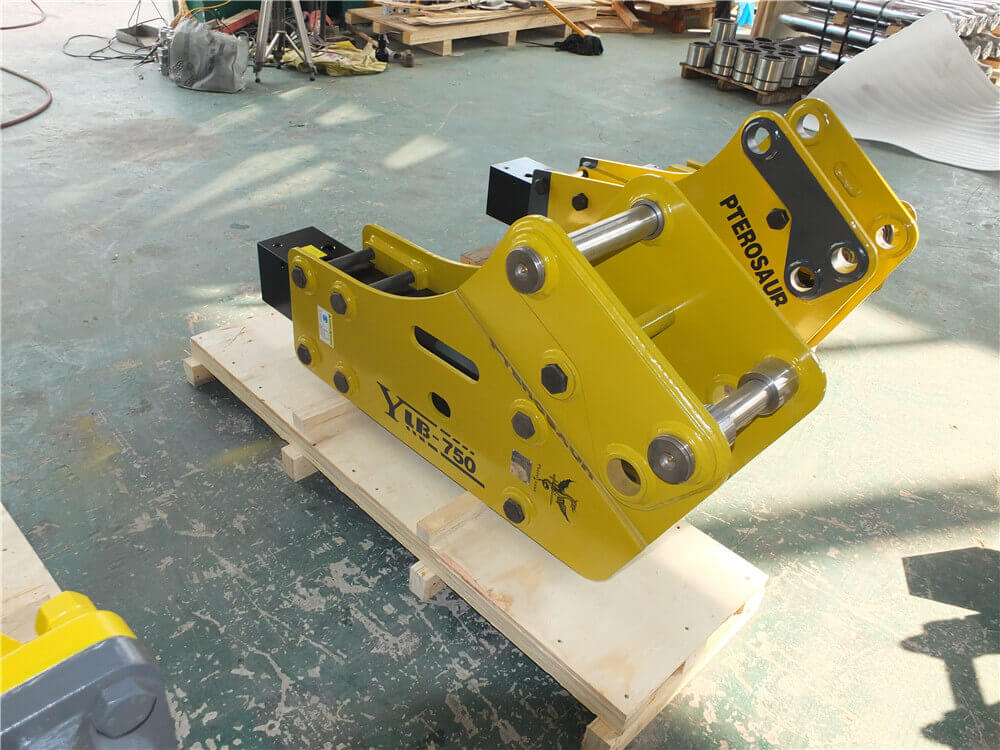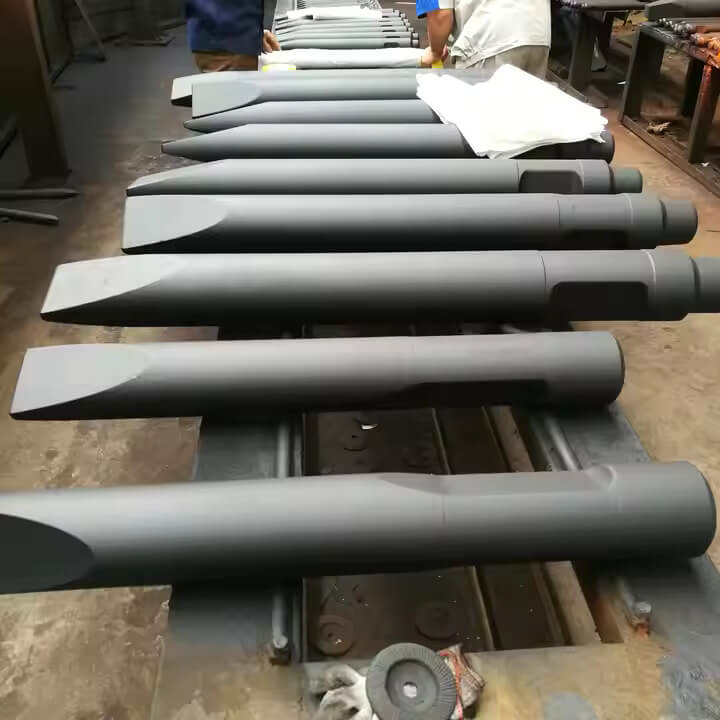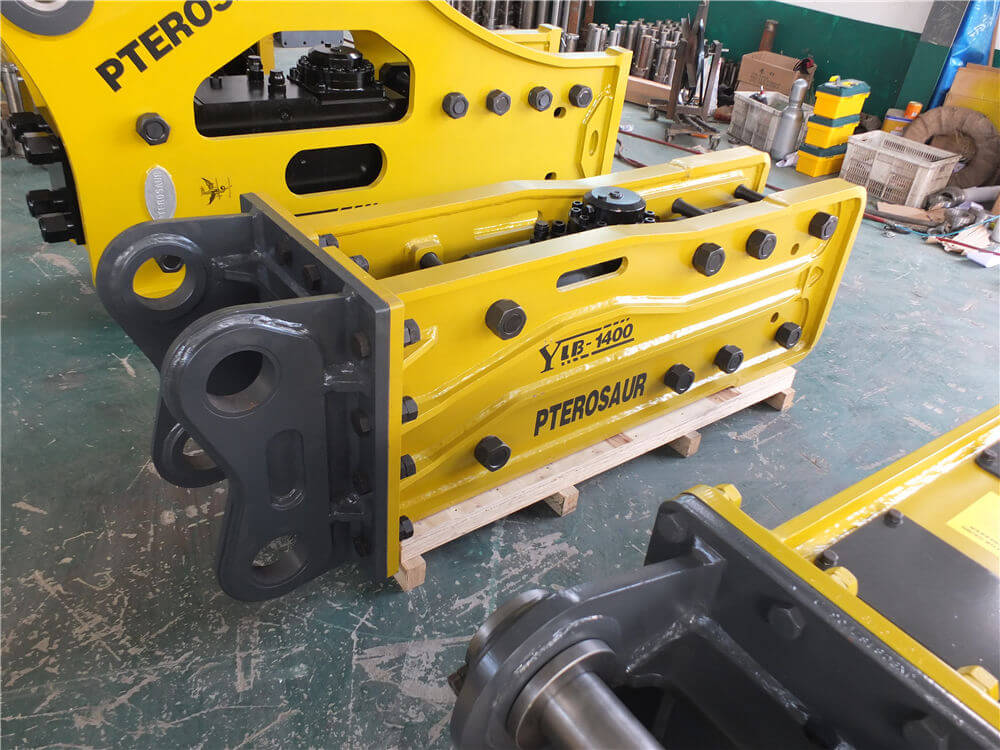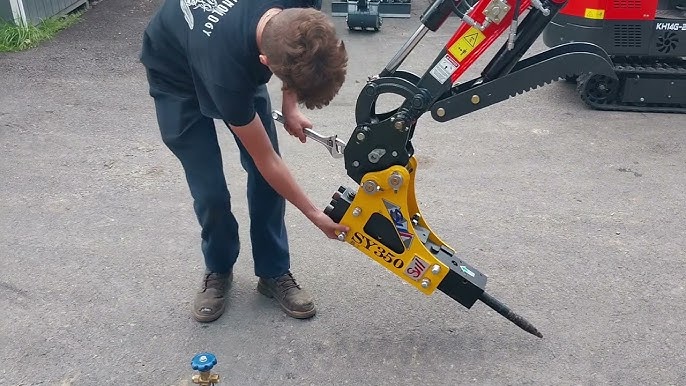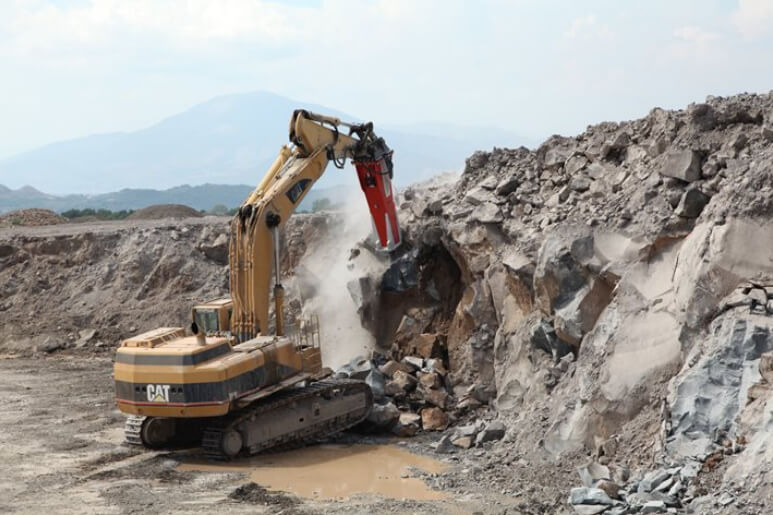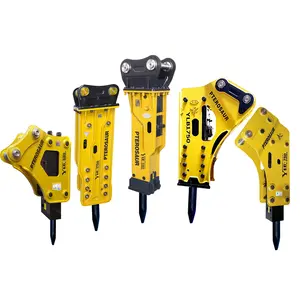
Hydraulic breakers play an essential role in the building demolition industry. As urbanization accelerates, the demolition of old structures to make way for new ones has become increasingly important. The use of hydraulic breakers makes this process more efficient, safe, and cost-effective. This article will explore the advantages of hydraulic breakers in demolition, their working principles, and specific case studies.
I. Working Principle of Hydraulic Breakers
Hydraulic breakers operate using hydraulic systems to generate power, utilizing impact force and frequency to break down hard materials such as concrete, bricks, and rocks. The principle involves driving a piston with hydraulic oil to create a significant impact force at the tip of the tool. This force effectively shatters materials, making demolition work easier and more efficient. Hydraulic breakers can be fitted with various types of chisels, allowing them to tackle different densities and hardness of building materials.
II. Advantages of Hydraulic Breakers
- High Efficiency: Compared to traditional demolition methods, hydraulic breakers significantly speed up the demolition process, reducing project timelines and labor costs.
- Safety: Operators can control hydraulic breakers remotely, minimizing their exposure to hazardous environments and enhancing overall safety.
- Precision: Hydraulic breakers allow for accurate targeting and breaking of materials, which is particularly beneficial when surrounding structures need to be preserved.
- Versatility: Whether for small residential demolitions or large commercial renovations, hydraulic breakers can adapt to a variety of construction settings.
- Environmental Friendliness: With lower noise and vibration levels, hydraulic breakers reduce impact on surrounding residents and environments, aligning with sustainable construction practices.
III. Specific Case Studies of Hydraulic Breakers in Demolition
- Renovation of Old Residential Areas: In a city renewal project, hydraulic breakers were extensively used to demolish outdated residential buildings. The precise control of the breakers ensured that surrounding structures were not damaged, allowing for a seamless transition to new construction.
- Reconstruction of Commercial Buildings: A large shopping mall was demolished for redevelopment, where hydraulic breakers were employed to efficiently process the concrete structures and foundations. The use of these breakers significantly shortened the construction timeline, allowing the project to progress on schedule and reducing overall costs.
- Safe Bridge Demolition: During a bridge renovation project, hydraulic breakers were utilized to dismantle the concrete structure of an aging bridge. Given the busy traffic around the bridge, the demolition was carried out safely and without disrupting local traffic flow.
- Infrastructure Reconstruction: In a road reconstruction project, hydraulic breakers were used to quickly remove the old pavement, enabling construction teams to proceed with new roadwork in a timely manner. This efficiency minimized traffic disruptions, allowing the project to be completed on schedule.
- Environmental Restoration Projects: In an urban environmental remediation initiative, hydraulic breakers facilitated the demolition of abandoned industrial buildings. This process not only protected the surrounding environment but also reduced construction waste during the demolition phase.
IV. Conclusion
The application of hydraulic breakers in the building demolition sector offers significant advantages, bringing greater efficiency and safety to modern construction projects. Their high performance, precision, and adaptability enhance the scientific and controlled nature of demolition work. As technology continues to evolve, the effectiveness and scope of hydraulic breakers will expand, providing stronger support for future demolition efforts. By leveraging hydraulic breakers effectively, construction teams can achieve not only efficient demolition but also contribute positively to environmental sustainability and safety, aligning with contemporary society’s focus on sustainable development.

